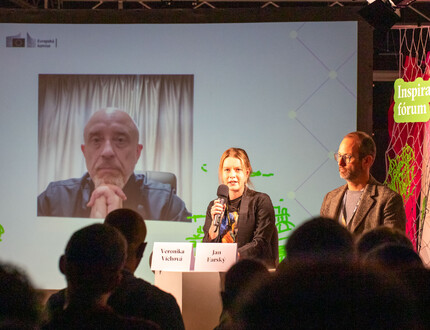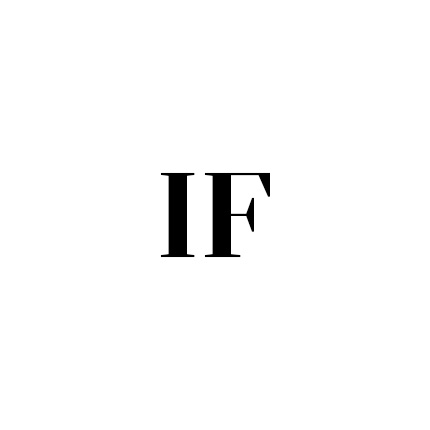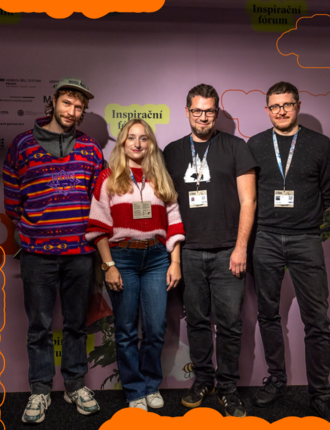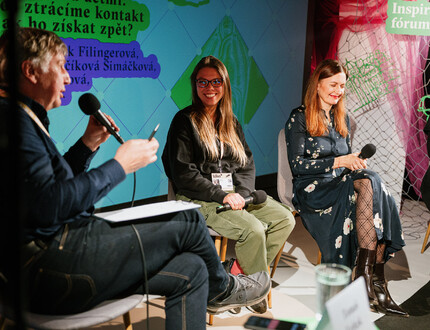When we ask about living in the world, we are also speaking about inhabiting the world, for there is no living without dwelling in the world. And dwelling brings up both duration and space. It would be different if we were speaking only about the earth. The earth persists in many places without being inhabited by humans, and that is a great relief in the midst of climate destruction. The world, however, always implies a space and time of inhabitation. A world includes the temporal and spatial coordinates in which a life is lived – all the supports that provide for duration through space and time in relation to a network or field of living beings and built environments. If the world is uninhabitable, then destruction has had its way with the world. If a life is unlivable, then the conditions of livability have been destroyed. The destruction of the earth through climate change makes for an uninhabitable world: it reminds us of the necessity of limits on the human inhabitation of the environment, the fact that we cannot inhabit all of the earth without destroying the earth, and that imposing limits on where and how we live is necessary to preserve the earth which, in turn, preserves our lives. Perhaps it sounds simplistic to say, but, there are better and worse ways for humans to inhabit the world. And sometimes the earth can only survive—and regenerate—only if limits are set on the reach of human habitation. Humans impose limits on themselves in order to make for a habitable world under conditions of climate change.
Freedom at the expense of livability
The world in which one lives includes the earth, depends upon the earth, cannot exist without the earth. Moreover, a life proves not to be livable if the world is not inhabitable. Part of what it means to live, then, and to live in a way that is livable is to have a place to live, a part of the earth that can be inhabited without destroying that earth, to have shelter, and to be able to dwell as a body in a world that is sustained and safeguarded by the structures (and infrastructures) in which one lives—to be part of what is common, to share in a world in common. To inhabit a world is part of what makes a life livable. So, we cannot finally separate the question of an inhabitable world from a livable life. If we, as humans, inhabit the earth without regard for biodiversity, without stopping climate change, without limiting carbon emissions, then we produce for ourselves an uninhabitable world. The world may not be the same as the earth, but if we destroy the earth, we also destroy our worlds. And if we live human lives with no limits on our freedom, then we enjoy our freedom at the expense of a livable life. We make our own lives unlivable in the name of our freedom. Or, rather, we make our world uninhabitable and our lives unlivable too often in the name of a personal liberty that values itself over all other values, and that becomes an instrument by which social bonds and livable worlds are destroyed. Personal liberty, then, in some of its variations must be seen as world-destroying power.
We make our own lives unlivable in the name of our freedom.
I am certainly not against personal liberty, but the destructive form seems to me to be less about the person or the individual than about a national sense of belonging and even a market sense of profit and gain. There is another form of freedom that is sidelined by this one, and it emerges in the midst of social life, a life that seeks a common world, a life that is free to seek a common world.
Limity akademického bádání i žité zkušenosti
We have seen during the pandemic that precarity and poverty have become intensified, and yet many are hopeful about redefining both sociality and solidarity during this time, and renewing demands for networks of care and interdependency that extend globally. The boundaries of the body presumed by most forms of individualism have been called into question as the invariable porosity of the body, its openings, its mucosal linings, its wind pipes, all become salient in matters of life and death. How then do we rethink bodily relations of interdependency, intertwinement, and porosity during these times? Or, rather, how do these times, and this world, already shifting in intensity, offer a chance to reflect upon interdependency, intertwinement, and porosity? Further, do these very concepts give us a new way to understand social equality and inequality? My wager is that the vexed and overlapping senses of sociality and livability can revise some of our key political concepts, including freedom and equality. There is no way that the questioner is not implicated in the question. The question opens up a thought, perhaps beyond the settled horizons of both academic inquiry and ordinary experience.
I believe it is imperative to situate the global reach of the pandemic in the midst of climate change, for both foreground a sense of global interdependency as a life or death matter. Whatever sense of world we bring to this discussion is at least partially inflected by this question of continuing environmental destruction. That means we are living in a pandemic in the midst of environmental racism and within its terms, exemplified by unsafe water in poor regions and increasing numbers of evictions for many with uncertain income. The relation to air, water, shelter, and food, already compromised under the conditions of climate change and unbridled capitalism are even more acutely registered under the conditions of a pandemic. These are two different conditions, but they become linked together and intensified in the present. Those structures did not disappear; they intensified. On the one hand, the scaling back of travel and economic activity allowed the sea and air to recover from protracted contamination by environmental toxins. On the other hand, we only glimpsed what environmental renewal or repair might be before production ramped up again. Still, the pandemic has illuminated how the natural world could regenerate if production were cut back, if travel were curtailed, and carbon emissions and carbon footprints diminished or eradicated.
If income were secure, no worker would have to face the situation of having to work under perilous conditions in order to live.
I would like, ideally, to link the interconnected character of our lives to the obligation we have to organize the world, including health care, on principles of radical equality. The question of whether to open the economy that is posed from the perspective of lockdown, and “restart the world” in regions where confinement has been instituted for two months or more, assumes that restarting the economy will not lead to illness and death for many people. Or, the decision to refuse confinement altogether, as an approach, assumes that some people will fall ill and die, but, the argument goes, that is a small price to pay in order to keep the economy open. Keeping the economy open is, of course, important, especially for those who are poor, or who risk falling into poverty and debt without employment. But what are the risks for them? Indeed, many workers now face a question: do I continue to work in order to “make a living” even if “making a living” makes me die? It is not a question of work or death, but death as a result of work, even when work is precisely what one needs in order to live.
Conditions for living together
The contradiction is one that Marx pointed out long ago, but for him the condition was capitalism, not the pandemic (although for much of his writing life, a pandemic was there in the background). Under capitalism, the worker works in order to secure a wage that allows the worker and the worker’s family to secure subsistence. And yet, by working under conditions that do not protect the health of the worker, the worker risks their life. And by working hours that wear down the body, the worker suffers injury and illness, and becomes de-capacitated as a worker. By working, in other words, under such conditions, the worker ceases to be able to work, can no longer provide subsistence for themselves and their family or dependents. And that means that by working, the worker comes close to death, or dies, rather than secure the conditions for a livable life. The contradiction, according to Marx, could only be resolved through the dissolution of capitalism, and in our present moment, can only be resolved by a guaranteed annual income. Indeed, if income were secure, no worker would have to face the situation of having to work under perilous conditions in order to live. Living with that anxiety is not a livable life. This is not an equitable or life-supporting organization of common life.
And yet, we find care networks operating outside of government offices and structures, that offer transportation, food delivery, and shelter to those in need, and widen circles of support through online networks that produce material effects, constituting new social infrastructures in the face of failing or absent ones. The normative principles for this movement include interdependency, social solidarity, and revolutionary critique. They are seeking to provide the conditions for life, for living on, for living together. The care solidarities are opposed to letting die. And in the case of both Black Lives Matter and Ni Una Menos, the opposition to killing is linked with a broader critique of inequality and exploitation.
I would simply add that once we recognize the unequal distribution of the grievability of lives our debates about equality and violence will be transformed, and the link between the two domains, more firmly understood. For equality and livability to become pervasive features of our world, they must be asserted and claimed by precisely those bodies who endeavor still to live, to secure the conditions of living, whose living endeavor becomes the very substance of thought—and of transformative protest.
It is ever more important to understand how global inequalities, mired in racism, establish the positions from which the history of the pandemic can be narrated.
In the autumn of 2021 (in the Northern hemisphere), as the Delta variant escalates and the pandemic takes a new turn, it is clear that the celebrations that proclaimed the pandemic to be over were more hopeful and manic than realistic. In Chad and Tanzania, the pandemic was never over, and very few vaccines have yet to be received. Hence, it is ever more important to understand how global inequalities, mired in racism, establish the positions from which the history of the pandemic can be narrated. In several countries, the media reports increasing levels of anger among the population who consider it to be their “right” to be done with the pandemic and to return to lives shaped from their personal liberty. This form of liberty is expressed as righteous entitlement, the right to throw off the state and its health mandates, the right to get sick and to make others sick, the right to spread death if that is one’s wish. The rage is the voice of a narrow and destructive version of personal liberty, one that abandons a common or shared life, the ideals of collective freedom, and the care for the earth, for living creatures, including human ones. The rage may be the last gasps of a version of personal liberty that understood personhood to be bound by the skin – discrete and separate. What is left to realize is that the body is porous, that its openings are necessary for breath, food, digestion, and well-being, for sexuality, intimacy, and the taking in of each other’s bodies. We cannot really live without taking in another, or finding ourselves inside their pores. For that is where we live, outside of the bounded self and its conceits, in relation to a world that sustains us, an earth and its habitats, including human ones, that depend on a politics that is committed to a world in which we can all breathe without fear of contagion, of pollution, of the police chokehold, where our breath is intermingled with the world’s breath, and life and breath, syncopated and free, becomes what is shared – our commons, as it were.
The task before us is how to think about infrastructures of care that are not simply those that belong to a maternal ethic or a domestic space.
The task before us is how to think about infrastructures of care that are not simply those that belong to a maternal ethic or a domestic space. Our task is to de-domesticate care, make it into a global value, one that informs a global movement to stop climate destruction, environmental racism, violence and discrimination against all minorities, and the guarantee of health care, shelter, food, and enfranchisement to all those who are living – or dying – in the peripheries of this world. If we are called utopian, then that is fine. That means that we believe that the terms of reality, its coordinates and limits, are not firmly set in stone. That our collective efforts can imagine, and realize, new conditions for living in an inhabitable and sustainable world. That means that parts of the earth should never be excavated or even inhabited, except by those who already have cultivated an affirmative practice of living with nature, opposed to its plundering. The structures of capitalism would then cease to distort our thinking and we might understand that we are, yes, in each other’s hands, interdependent, connected with lifeworlds and life processes that exceed and sustain us, and which we must now safeguard against our own destructiveness.
September 21, 2021
The text was originally published in the 2021 Ji.hlava IDFF festival book.









